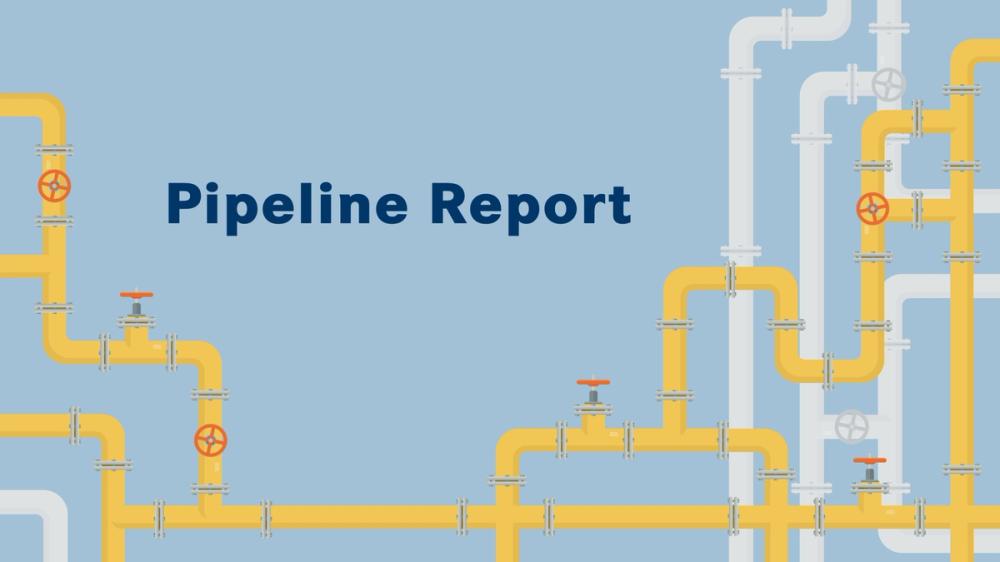
FDA Lifts Partial Clinical Hold on TakeAim Lymphoma Trial Evaluating Emavusertib in B-cell Malignancies

The FDA has lifted a partial clinical hold on the open-label, dose-escalating phase 1/2 TakeAim Lymphoma trial investigating the safety and efficacy of emavusertib in patients with relapsed or refractory B-cell malignancies.
The FDA has lifted a partial clinical hold on the open-label, dose-escalating phase 1/2 TakeAim Lymphoma trial (NCT03328078) investigating the safety and efficacy of emavusertib (previously CA-4948) in patients with relapsed or refractory B-cell malignancies.1
The agency lifted the hold after reviewing a comprehensive data package submitted by Curis, Inc., the developer of emavusertib. Curis and the FDA agreed on a strategy for rhabdomyolysis identification and management, along with an understanding that the company will enroll at least 9 additional patients at the 200 mg dose level of emavusertib in combination with ibrutinib (Imbruvica).
"We are excited to announce that FDA has completed its review of the TakeAim Lymphoma study and has lifted the partial clinical hold. We are working with our clinical sites to quickly resume enrollment of new patients in this study in the third quarter," James Dentzer, president and chief executive officer of Curis, stated in a press release.
On April 12, 2022
When the FDA placed the partial clinical hold on the TakeAim Leukemia trial, the agencyrequested additional information from the study, including findings associated with the death of a patient with relapsed/refractory AML who experienced rhabdomyolysis, among other conditions. Previous results identified rhabdomyolysis as a dose-limiting toxicity associated with emavusertib. The TakeAim Leukemia trial remains under a partial clinical hold.
The TakeAim Lymphoma study enrolled patients with who were at least 18 years old with a diagnosis of histopathologically confirmed B-cell hematologic malignancies.4 Patients were required to have an ECOG performance status of 0 or 1 and a life expectancy of at least 3 months.
In part A1 of the trial, investigators assessed escalating doses of single-agent emavusertib in patients with non-Hodgkin lymphoma, Waldenström macroglobulinemia or lymphoplasmacytic lymphoma, and chronic lymphocytic leukemia/small lymphocytic lymphoma. Part A2 investigated escalating doses of emavusertib in combination with ibrutinib.
Part B will be the expansion portion of the trial, which will examine the efficacy and safety of the recommended phase 2 dose (RP2D) of emavusertib plus ibrutinib in patients with marginal zone lymphoma (cohort 1), activated B-cell diffuse large B-cell lymphoma or extranodal subtypes (cohort 2), primary central nervous system (CNS) lymphoma (cohort 3), and those receiving ibrutinib monotherapy who have developed adaptive, secondary resistance (cohort 4).
In part A, the primary objectives are safety and tolerability, plus determining the maximum tolerated dose and the RP2D. In part B, primary objectives include overall response rate (ORR) and complete response rate.
Secondary objectives in both parts consisted of pharmacokinetics for emavusertib, ORR, duration of response, disease control rate, progression-free survival, and overall survival with emavusertib alone and in combination with ibrutinib. In part B specifically, investigators will aim to estimate the blood-brain barrier penetration with this approach in those with CNS lymphoma.
After the partial clinical hold was lifted, Curis updated its timeline for the release of clinical data to 2023.
References
- FDA Lifts Partial Clinical Hold on the TakeAim Lymphoma Study of Emavusertib. News release. Curis, Inc. August 18, 2022. Accessed August 18, 2022.
https://bit.ly/3pqraCi - Curis announces FDA partial clinical hold for TakeAim Lymphoma study of emavusertib (CA-4948). News release. Curis, Inc.; April 11, 2022. Accessed August 18, 2022.
https://bit.ly/3E4zrlU - Curis announces FDA partial clinical hold for TakeAim Leukemia study of emavusertib (CA-4948). News release. Curis, Inc. April 4, 2022. Accessed August 18, 2022.
https://prn.to/3NG7c1g - A study of CA-4948 in patients with relapsed or refractory hematologic malignancies. ClinicalTrials.gov. Updated April 7, 2022. Accessed August 18, 2022.
https://clinicaltrials.gov/ct2/show/NCT03328078






































